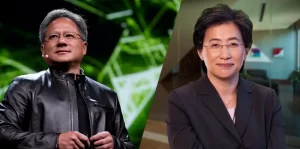Introduction: Setting the Stage
In a riveting exchange between Lex Friedman and Sam Altman, two prominent figures in the tech world, the future of computing took center stage. Altman’s assertion that we require a staggering $7 trillion worth of computing infrastructure sparked a captivating discussion, prompting us to delve deeper into the significance of computational power in shaping the trajectory of human progress.
Follow us on Linkedin for everything around Semiconductors & AI
“I did not tweet about that. I never said like we’re raising $7 trillion or blah blah blah.I meme like once there’s like misinformation out in the world.”
~Sam Altman, CEO, OpenAI on raising 7 Trillion Dollar.
Altman’s Vision: Redefining the Role of Computing
Altman’s perspective on the future of computing marks a departure from conventional notions. Rather than viewing computing solely as a means to enhance productivity, Altman envisions a world where computational power serves as the linchpin of innovation across diverse domains. From healthcare and finance to transportation and education, Altman believes that computing has the potential to revolutionize every facet of human endeavor.
Sam Altman Says
” I think it will be maybe the most precious commodity in the world. And I think we should be investing heavily to make a lot more compute. Compute is… I think it’s gonna be an unusual market. People think about the market for like chips for mobile phones or something like that. And you can say that, okay, there’s 8 billion people in the world, maybe 7 billion of them have phones or 6 billion, let’s say. They upgrade every two years, so the market per year is 3 billion system on chip for smartphones. And if you make 30 billion, you will not sell 10 times as many phones because most people have one phone.
But compute is different, like intelligence is gonna be more like energy or something like that where the only thing that I think makes sense to talk about is at price X, the world will use this much compute and at price Y, the world will use this much compute because if it’s really cheap, I’ll have it like reading my email all day, like giving me suggestions about what I maybe should think about or work on and trying to cure cancer. And if it’s really expensive, maybe I’ll only use it or will only use it, try to cure cancer. So I think the world is gonna want a tremendous amount of compute. And there’s a lot of parts of that that are hard.”
~~Sam Altman, CEO, OpenAI on raising 7 Trillion Dollar on Lex Friedman Show
Read More: Chinese Foundry XMC, a Subsidiary of YMTC To Foray into HBM; for AI Applications – techovedas
The Rationale: Understanding the Need for $7 Trillion Worth of Computing
At the core of Altman’s vision lies a profound recognition of the exponential growth and transformative potential inherent in computational power. With advancements in artificial intelligence, machine learning, and data analytics accelerating at an unprecedented pace, the demand for computational resources has reached unprecedented heights. Moreover, Altman’s assertion of requiring $7 trillion worth of computing infrastructure reflects the scale of this demand and the boundless opportunities it presents.
Read More: 10 Indian Semiconductor Startups Backed by the DLI Scheme – techoveda
Broad Applications: Exploring the Boundless Potential of Computing
The applications of computing are as diverse as they are far-reaching. Whether it’s deciphering the complexities of the human genome, simulating climate patterns to mitigate the impact of climate change, or revolutionizing the way we interact with technology through immersive virtual environments, the potential of computing knows no bounds. Altman’s vision underscores the pivotal role that computing infrastructure plays in unlocking these possibilities and driving progress on a global scale.
Societal Implications: Computing as a Force for Good
Beyond its economic implications, Altman’s vision emphasizes the profound societal impact of computing. By democratizing access to computational resources and fostering innovation, computing has the potential to address some of humanity’s most pressing challenges, from healthcare disparities to environmental sustainability. Moreover, Altman envisions a future where technology serves as a force for good, empowering individuals and communities to thrive in an increasingly interconnected world.
Read More: Nvidia in Trouble : 3 Authors Sue Company Over AI Training Data
Challenges Ahead: Overcoming Technical and Ethical Hurdles
However, realizing Altman’s vision is not without its challenges. Technical hurdles such as scalability, energy efficiency, and data privacy must be addressed to ensure the seamless integration of computing infrastructure into our daily lives. Moreover, ethical considerations surrounding issues such as algorithmic bias, data sovereignty, and the equitable distribution of resources require careful navigation. Altman acknowledges these challenges but remains optimistic about our collective ability to overcome them through collaboration and innovation.
Read More:5 Major Highlights from Nvidia GTC 2024 – techovedas
Conclusion: Paving the Way for a Future Powered by Computing
In conclusion, Sam Altman’s vision for $7 trillion worth of computing infrastructure represents a bold reimagining of the role of technology in society. By recognizing the transformative power of computing and investing in its potential, such as we have the opportunity to shape a future defined by innovation, progress, and prosperity for all. However, realizing this vision requires concerted effort, collaboration, and a steadfast commitment to harnessing technology for the greater good. As we embark on this journey towards a future powered by computing, let us heed Altman’s call to unlock the full potential of technology and create a better world for generations to come.




